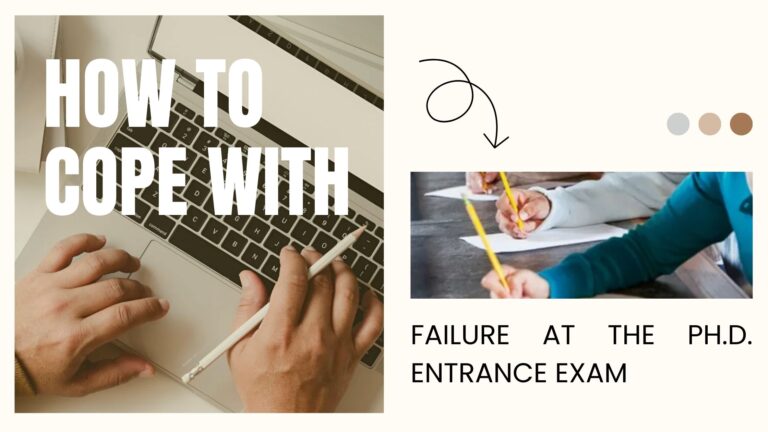How to Choose Your Supervisor for a Ph.D. Program
Choosing your Ph.D. supervisor is one of the most critical decisions you will make in your doctoral journey. The right research supervisor can inspire, challenge, and guide you through the highs and lows of your doctoral program.
While the process may feel overwhelming, a structured and thoughtful approach can make it smoother.
This blog breaks down the critical elements of selecting the right research supervisor, from identifying key qualifications to nurturing a productive partnership that lasts through your doctoral studies.
Also Read: How to Write a Ph.D. Personal Statement
Understanding the Role of a Ph.D. Supervisor
Before diving into how to choose a supervisor, it is essential to understand what they bring to your academic journey. A good Ph.D. supervisor wears multiple hats. They are mentors, critics, facilitators, and sometimes even career advisors.
A good supervisor does not just oversee your work; they guide you through the research journey, ensuring academic excellence while pushing you to think critically.
However, not all supervisors have the same approach. Some are hands-on, providing detailed feedback at every stage, while others adopt a more relaxed style, expecting you to take the lead. Finding the right supervisor becomes much simpler when you know what kind of guidance you require.
Qualities of an Ideal Research Supervisor
When evaluating potential supervisors, look beyond their academic credentials. These are the essential qualities that set a good mentor apart:
- Expertise in Your Research Area – They should have a strong academic background and active research experience in your chosen field.
- Effective Communication – Gives transparent feedback, values your input, and maintains open academic dialogue.
- Supportive Mentorship: A good supervisor encourages your independence while offering the necessary guidance.
- Professional Network: A well-connected supervisor can open doors to conferences, collaborations, and future career opportunities.
Taking the time to assess these qualities will help you avoid mismatches that could derail your progress.
How to Choose Your Prospective Supervisor
Start by identifying faculty members whose research aligns with your interests. Go beyond the basics, read their research papers, experience their teaching style through lectures, and gather honest feedback from students they have mentored. This can give insight into their mentoring style and work environment.
Make a shortlist of potential supervisors and evaluate them based on compatibility with your academic goals, values, and working style. You should feel entirely comfortable interviewing several supervisors before committing to one.
How to Approach a Potential Supervisor
After identifying a potential supervisor, the vital part now comes: reaching out in a professional and strategically prepared way.
Start by thoroughly researching their work. Read their recent papers, understand their research focus, and check if they accept students. Once prepared to initiate contact, compose a clear, professional email to make your first impression count. A well-structured message should include:
- A clear subject line (e.g., “Inquiry Regarding Ph.D. Supervision Opportunities”)
- A brief introduction about yourself and your academic background
- A mention of how your research interests align with their expertise
- A polite request for a discussion, either in person or virtually
Attaching a CV and a preliminary research proposal (if available) can strengthen your case. Remember, this initial interaction sets the tone for your future relationship, so professionalism is key.
Making a Strong First Impression
First meetings with potential supervisors are like academic interviews—you want to demonstrate your preparedness and enthusiasm.
Demonstrate your engagement by asking informed questions about their work and proposing connections to your research. Discuss your long-term goals and be open to their suggestions. Supervisors appreciate candidates who show initiative but are also receptive to guidance.
Additionally, please pay attention to their communication style. Do they seem engaged and interested? Do their expectations align with your working preferences? These early observations can help gauge whether this will be a productive partnership.
Maintaining a Positive Supervisor-Student Relationship
Securing a great supervisor is just the beginning. Nurturing this relationship throughout your Ph.D. journey is crucial for sustained success.
Start by setting clear expectations early on. Clarify expectations regarding meeting frequency, feedback turnaround times, and communication preferences early in your collaboration.
Some supervisors prefer weekly check-ins, while others may opt for monthly updates. Clarifying these details early creates a smooth working relationship from the start.
Proactivity is another essential factor. Regularly update your supervisor on your progress, share drafts well in advance, and seek feedback before major deadlines.
Make open dialogue a habit – when both parties address concerns early, solutions come more easily.
Lastly, handle feedback with professionalism. Constructive criticism is part of academic growth; learning to incorporate it effectively will improve your work and strengthen your rapport with your supervisor.
If you’re looking for expert support during your research journey, several trusted platforms offer thesis writing services in India to help ensure your work meets the highest academic standards. From proposal development to final submission, PhD thesis writing services in India can provide valuable assistance in navigating the complexities of doctoral research and documentation.
Final Thoughts: Choosing Wisely for Long-Term Success
Your Ph.D. supervisor is crucial to your academic journey and professional trajectory. Researching, approaching, and building a strong relationship with the right mentor can make your doctoral journey more enriching and less stressful.
Also Read: How to Write a Strong Conclusion
Key Takeaways
- A efficient Ph.D. supervisor provides expertise, mentorship, and structured guidance.
- Approach potential supervisors with a well-researched, professional email highlighting alignment with their work.
- First impressions matter—demonstrate enthusiasm, preparedness, and openness to feedback.
- Build a strong foundation through open communication and mutually agreed-upon expectations from day one.
By making an informed choice, you set yourself up for a successful and fulfilling Ph.D. experience.







